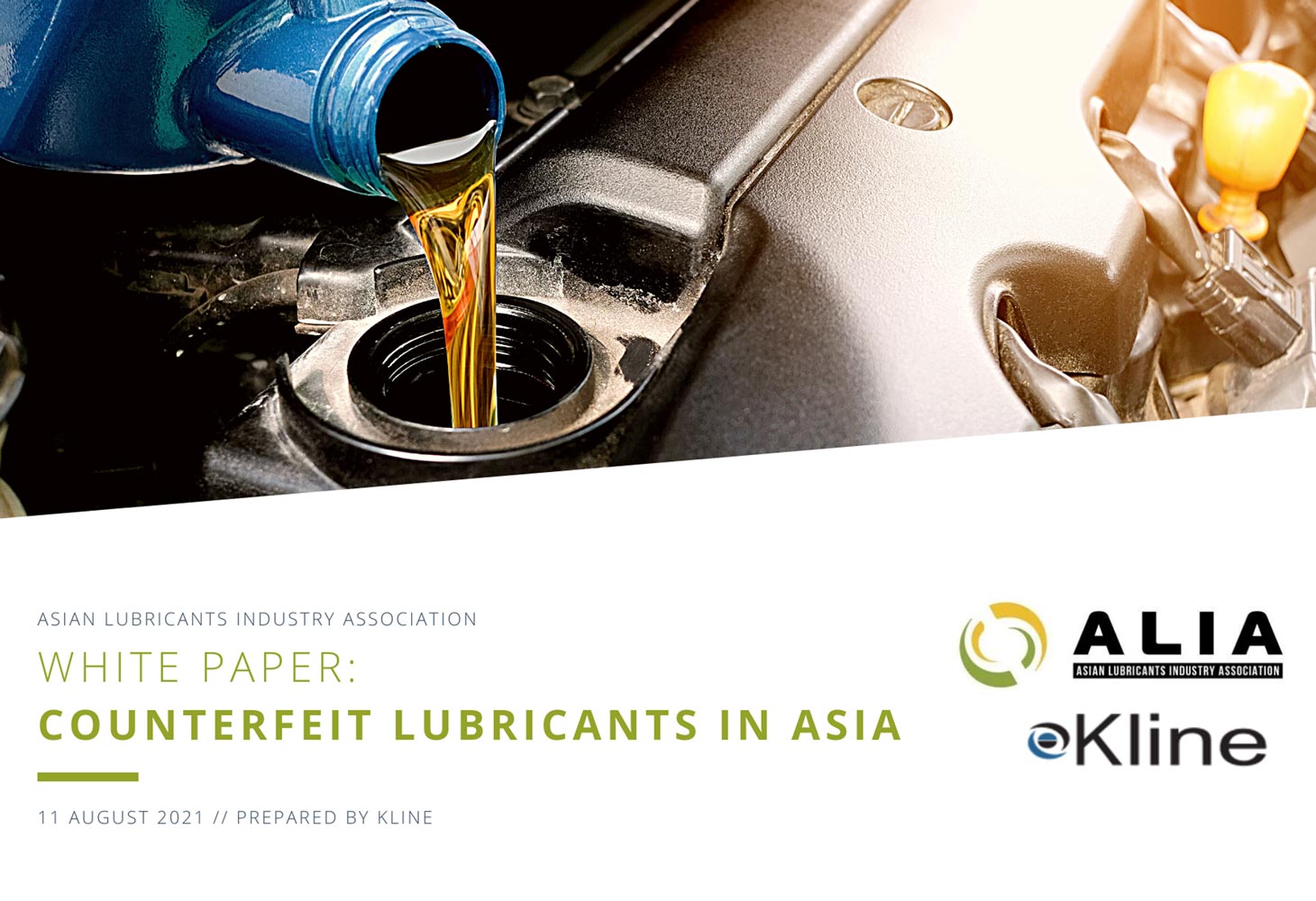
ALIA to release whitepaper on counterfeiting of lubricants
Counterfeiting is big business and has long plagued the luxury goods industry. In the lubricants industry, top brands such as Shell, Castrol, Mobil, etc., have employed various anti-counterfeiting measures to address this problem.
It is estimated that counterfeit products account for approximately 10% of total lubricant sales globally. Passenger car motor oils (PCMO), heavy-duty motor oils (HDMO), motorcycle oils (MCO), lubricating grease, metalworking fluids (MWF), hydraulic fluids, and industrial engine oils are particularly prone to counterfeiting due to their high demand.
The Asian Lubricants Industry Association (ALIA), the voice of the Asian lubricants industry, has collaborated with Kline & Company, a leading worldwide consulting and research firm, to prepare a whitepaper on the subject. The whitepaper will be officially released tomorrow morning during the virtual ALIA Member-to-Member Sharing Session, to be moderated by Sharmini Lohadhasan, ALIA chair for the Subcommittee on Governance, Best Practices and International Relations. The event will feature panellists from the lubricants industry, Valvoline China, leading e-commerce player, Alibaba, and Singapore-based luxury watch dealer Leong Poh Kee Pte.
The ALIA whitepaper entitled “Counterfeit Lubricants in Asia” analyses the degree of counterfeiting in the Asia region, important drivers of this trend, and the considerable challenges companies face to combat the threat of counterfeiting. The ALIA whitepaper draws on survey responses from affected companies throughout China, South, and Southeast Asia. Actionable recommendations are included in the report, as well as insights into the role of local authorities.
Asia’s growing share of international lubricant brands is incentivizing the growth of counterfeiting of lubricants. Counterfeiters are now adopting e-commerce as a new channel to reach a wider audience, especially during the global Covid-19 pandemic, which has seen the explosive growth of e-commerce. According to the United Nations, the share of retail sales of e-commerce grew from 16% in 2019 to 19% in 2020. Overall, global e-commerce sales jumped to USD26.7 trillion in 2019, up 4% from a year earlier, the UN number-crunchers noted, citing the latest available estimates. In addition to consumer online purchases, this figure includes business-to-business (B2B) trade, which together was worth 30% of global gross domestic product two years ago.














